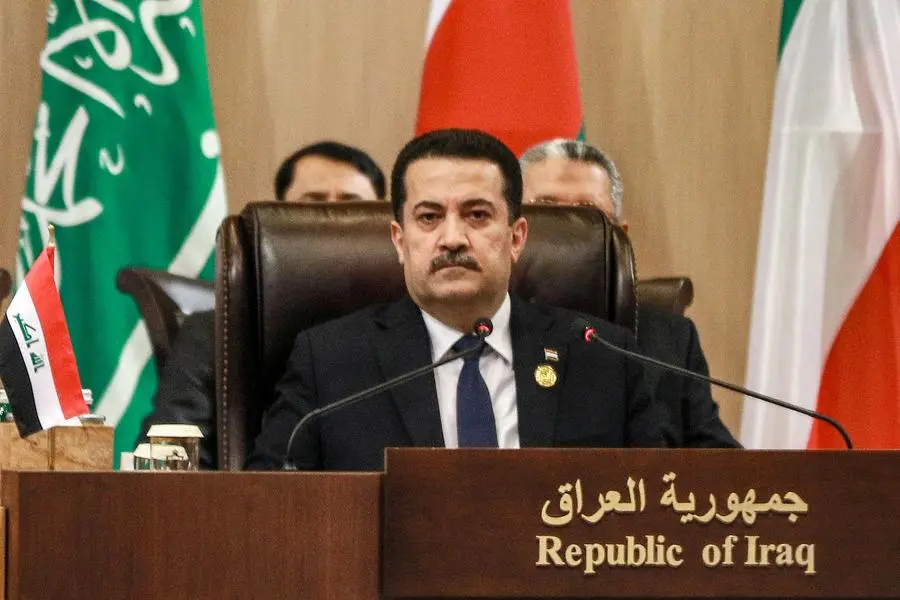PHOTO
Iraqi Prime Minister Mohamed Shia al-Sudani said Friday he was determined to "put an end" to the international anti-jihadist coalition in his country, after a US strike killed a pro-Iran commander.
Sudani, whose government relies on support from Tehran-aligned parties, has repeatedly said in recent weeks he would like to see foreign troops leave Iraq.
But the latest remarks came amid soaring regional tensions, with the repercussions of the Israel-Hamas war, raging for nearly three months, increasingly felt in Iraq and across the Middle East.
A US drone strike on Thursday killed a military commander and another member of Harakat al-Nujaba, a faction of Hashed al-Shaabi -- a collection of mainly pro-Iranian former paramilitary units now integrated into the Iraqi armed forces.
Washington labelled the attack in Iraq's capital an act of self-defence, while Sudani's government decried it as an act of "blatant aggression" on the part of the US-led coalition.
The Iraqi premier on Friday "affirmed (his) firm position seeking to put an end to the existence of the international coalition, as the justifications for its existence have ended", according to a statement from by his office.
He said "dialogue" to take place soon would "determine the procedure to end this presence", the statement said.
Sudani was speaking at a commemoration for slain Iranian general Qasem Soleimani, who led the Revolutionary Guards' foreign operations and was killed in a US drone strike in Baghdad in January 2020.
US and other coalition forces in Iraq, deployed since 2014 in the fight against the Islamic State group, have come under regular attacks since fighting erupted on October 7 between Israel and Iran-backed Palestinian group Hamas.
Washington says there have been more than 100 attacks on its forces in Iraq and neighbouring Syria since mid-October.
Most have been claimed by the Islamic Resistance in Iraq, a loose alliance of Iran-linked armed groups that oppose US support for Israel in the Gaza war.
On Friday a new drone attack targeted the Harir military base in Iraqi Kurdistan which used to host coalition troops, Kurdish officials said without giving further details.
And the US Central Command announced Friday on social media platform X that Iraqi police in the central province of Babylon had "discovered a land attack cruise missile of Iranian design that failed to launch".
"The use of Iranian supplied munitions by terrorist groups within Iraq and Syria endangers coalition forces and local residents," CENTCOM said.
The United States has around 2,500 troops in Iraq and 900 in Syria as part of the multinational coalition set up at the height of the Islamic State group's territorial gains. Other partners include France, Spain and the United Kingdom.
Baghdad in late 2017 declared victory over the group, but jihadist cells remain in remote areas of northern Iraq and continue to sporadically launch attacks.





















